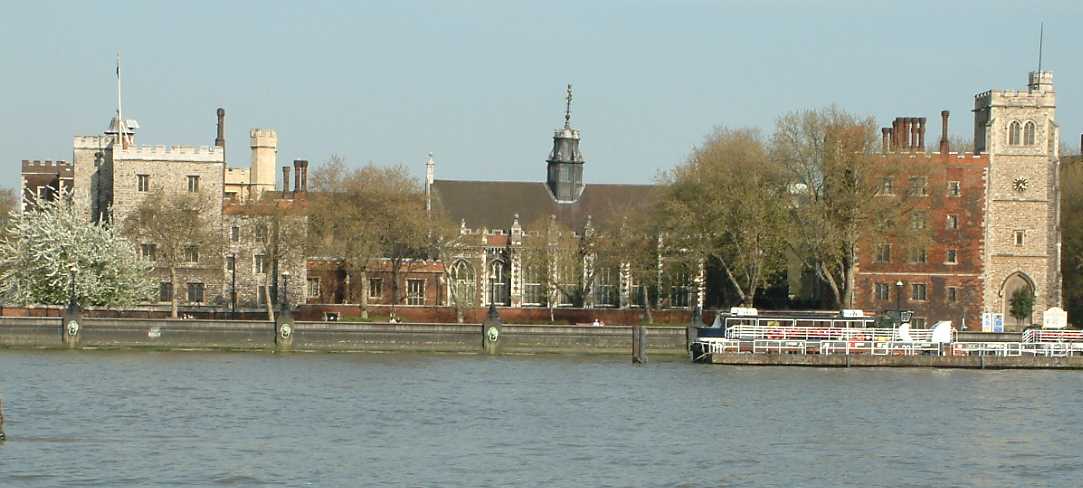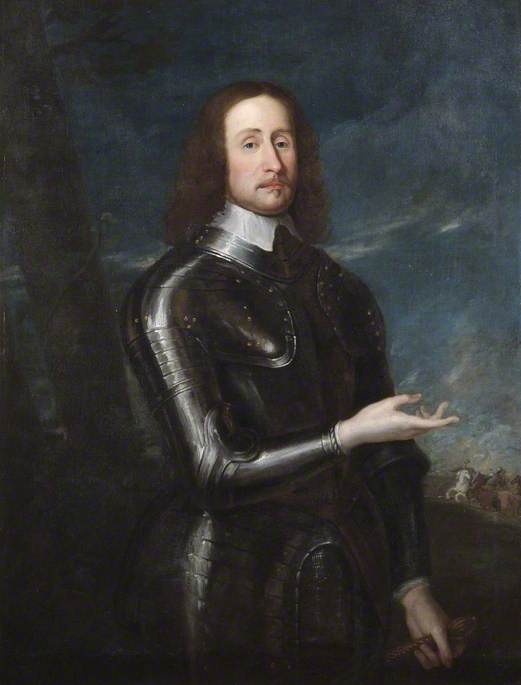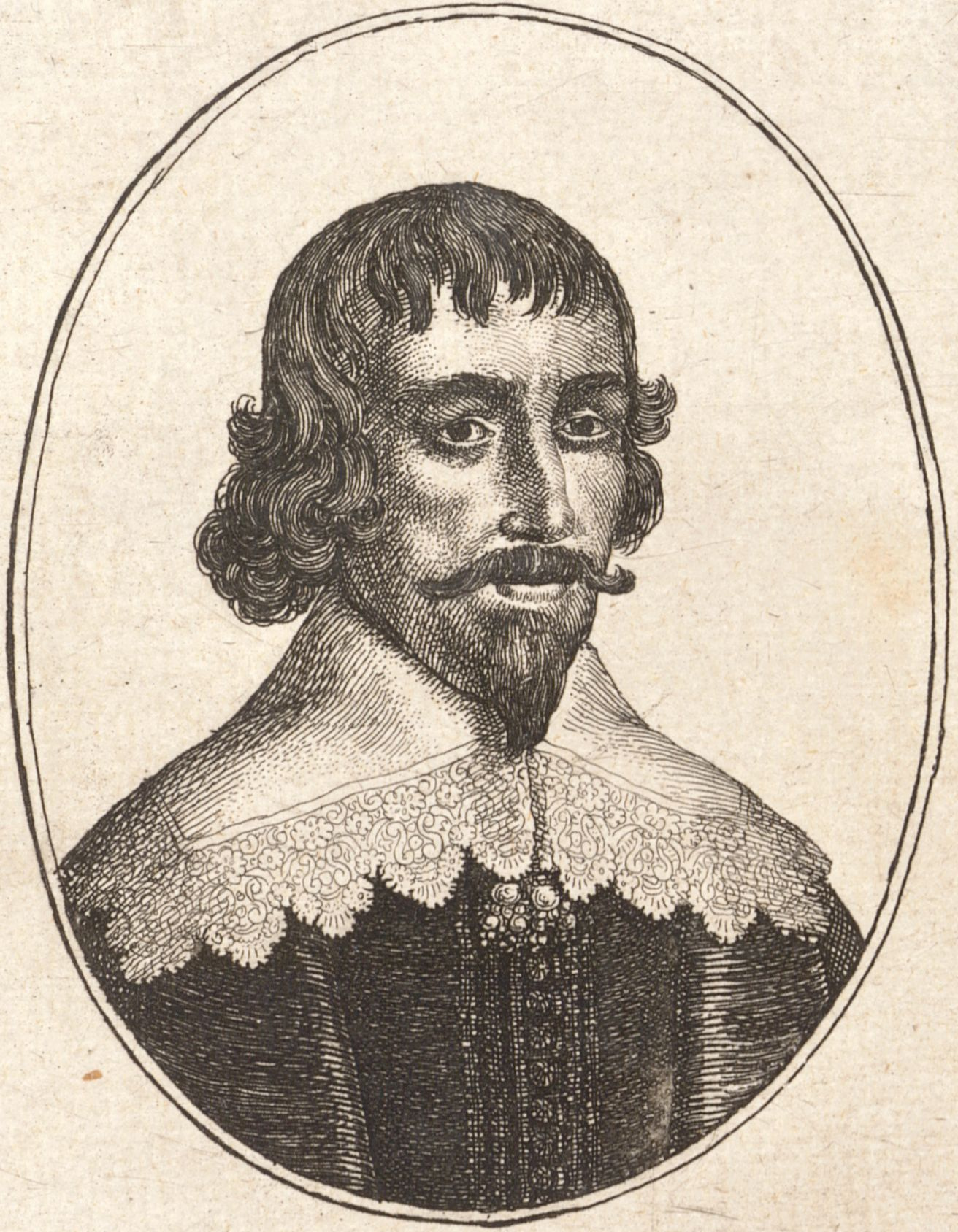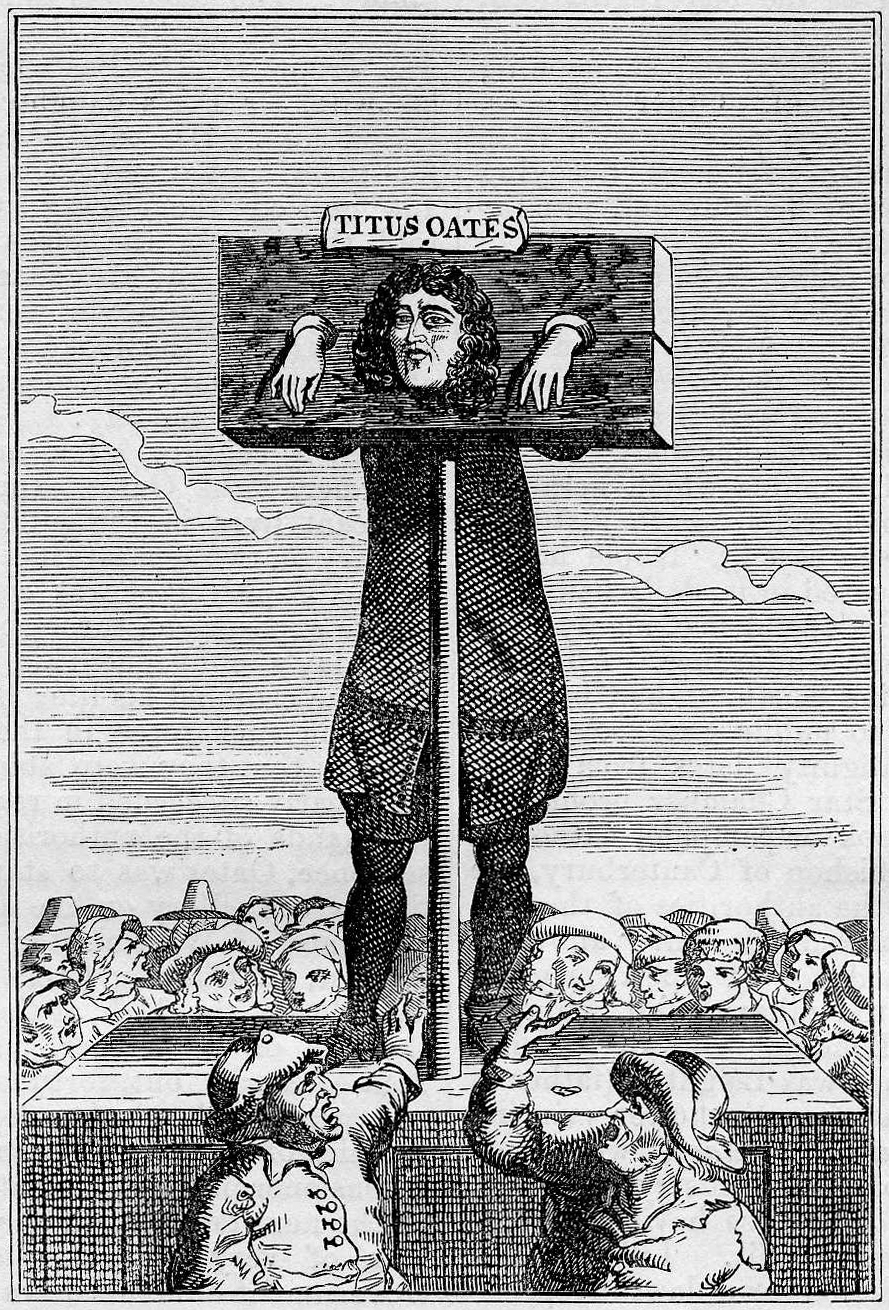|
Attack On Lambeth Palace, 1640
In May 1640 an armed mob gathered at Lambeth Palace and attacked it. Claiming to want to speak with the highly unpopular Archbishop of Canterbury, William Laud, the crowd blamed Laud for the prorogation of the Short Parliament, recent parliament. He was also distrusted for seemingly advocating High Church Anglicanism, possibly being a crypto-Papist, and for his support of Charles I of England, Charles I's unpopular Queen, the Catholic Henrietta Maria. In the weeks proceeding the assault, several libels were published against Laud, often threatening him with violence and predicting an attack on the palace. On the night of 11/12 May, a mob descended upon Lambeth Palace, beating drums and armed. However, the archbishop was absent, having retired to Whitehall Palace for safety. His house was well guarded, and several riotors were shot at. In the aftermath of the attack, two men were tried for treason and executed for their roles. Laud himself was subsequently beheaded five years later af ... [...More Info...] [...Related Items...] OR: [Wikipedia] [Google] [Baidu] |
Lambeth Palace
Lambeth Palace is the official London residence of the Archbishop of Canterbury. It is situated in north Lambeth, London, on the south bank of the River Thames, south-east of the Palace of Westminster, which houses Parliament of the United Kingdom, Parliament, on the opposite bank. Close to Westminster and the City of London, City, the estate was first acquired by the archdiocese for the archbishop (who also has a residence at Old Palace, Canterbury) around 1200. History While the original residence of the archbishop of Canterbury was in his episcopal see, Canterbury, Canterbury, Kent, a site originally called the Manor of Lambeth or Lambeth House was acquired by the diocese around Anno Domini, AD 1200 (though Archbishop Anselm of Canterbury, Anselm had a house there a century earlier) and has since served as the archbishop's London residence. The site was chosen for its convenient proximity to the royal palace and government seat of Westminster, just across the Thames. The si ... [...More Info...] [...Related Items...] OR: [Wikipedia] [Google] [Baidu] |
High Church
A ''high church'' is a Christian Church whose beliefs and practices of Christian ecclesiology, Christian liturgy, liturgy, and Christian theology, theology emphasize "ritual, priestly authority, [and] sacraments," and a standard liturgy. Although used in connection with various Christian denominations, Christian traditions such as High Church Lutheranism, ''high church'' Lutheranism, the English term ''high church'' originated in the Anglican tradition, where it described a churchmanship in which a number of Ritualism, ritual practices associated in the popular mind with Roman Catholicism were used, or as a description of such practices in the Catholic Church and elsewhere. The opposite tradition is ''low church''. Contemporary media discussing Anglican churches often prefer the terms Evangelical Anglicanism, evangelical to ''low church'' and Anglo-Catholic to ''high church'', even though their meanings do not exactly correspond. Other Christian denominations that contain ''high ch ... [...More Info...] [...Related Items...] OR: [Wikipedia] [Google] [Baidu] |
Keith Thomas (historian)
Sir Keith Vivian Thomas (born 2 January 1933) is a Welsh historian of the early modern world based at Oxford University. He is best known as the author of ''Religion and the Decline of Magic'' and ''Man and the Natural World''. From 1986 to 2000, he was Master (college), president of Corpus Christi College, Oxford. Early life and education Thomas was born on 2 January 1933 in Wick, Vale of Glamorgan, Wick, Vale of Glamorgan, Glamorgan, Wales. He was educated at Barry County Grammar School, a State school, state grammar school in Barry, Vale of Glamorgan. Having been awarded the Brackenbury Scholarship, he studied modern history at Balliol College, Oxford. He graduated from the University of Oxford with a first class honours, first class Bachelor of Arts (BA) degree in 1955; as per tradition, his BA was later promoted to a Master of Arts (Oxbridge and Dublin), Master of Arts (MA Oxon). Academic career He was a Fellow#Oxford, Cambridge and Dublin, fellow of All Souls College, Oxf ... [...More Info...] [...Related Items...] OR: [Wikipedia] [Google] [Baidu] |
Bishops' Wars
The Bishops' Wars were two separate conflicts fought in 1639 and 1640 between Scotland and England, with Scottish Royalists allied to England. They were the first of the Wars of the Three Kingdoms, which also include the First and Second English Civil Wars, the Irish Confederate Wars, and the 1650 to 1652 Anglo-Scottish War. In 1637, Charles I, then king of both Scotland and England, imposed changes in religious practice on the Church of Scotland. These were strongly opposed by many Scots who, in 1638, signed a National Covenant and became known as Covenanters. The General Assembly of the Church of Scotland then expelled bishops from the church, turning a religious dispute into a struggle for political supremacy. The new Covenanter government raised an army to prevent Charles using force to restore his authority. The First Bishops' War began in early 1639, when minor skirmishing between Covenanters and Scottish Royalists took place in north-east Scotland. In June, En ... [...More Info...] [...Related Items...] OR: [Wikipedia] [Google] [Baidu] |
Libel
Defamation is a communication that injures a third party's reputation and causes a legally redressable injury. The precise legal definition of defamation varies from country to country. It is not necessarily restricted to making assertions that are falsifiable, and can extend to concepts that are more abstract than reputationlike dignity and honour. In the English-speaking world, the law of defamation traditionally distinguishes between libel (written, printed, posted online, published in mass media) and slander (oral speech). It is treated as a civil wrong (tort, delict), as a criminal offence, or both. Defamation and related laws can encompass a variety of acts (from general defamation and insultas applicable to every citizen – to specialized provisions covering specific entities and social structures): * Defamation against a legal person in general * Insult against a legal person in general * Acts against public officials * Acts against state insti ... [...More Info...] [...Related Items...] OR: [Wikipedia] [Google] [Baidu] |
Anthony Van Dyck - Portrait Of William Laud (1573-1645), Archbishop Of Canterbury, C1635-1637 - Fitzwilliam Museum
Anthony, also spelled Antony, is a masculine given name derived from the ''Antonii'', a ''gens'' ( Roman family name) to which Mark Antony (''Marcus Antonius'') belonged. According to Plutarch, the Antonii gens were Heracleidae, being descendants of Anton, a son of Heracles. Anthony is an English name that is in use in many countries. It has been among the top 100 most popular male baby names in the United States since the late 19th century and has been among the top 100 male baby names between 1998 and 2018 in many countries including Canada, Australia, England, Ireland and Scotland. Equivalents include ''Antonio'' in Italian, Spanish, Portuguese and Maltese; ''Αντώνιος'' in Greek; ''António'' or ''Antônio'' in Portuguese; ''Antoni'' in Catalan, Polish, and Slovene; '' Anton'' in Dutch, Galician, German, Icelandic, Romanian, Russian, and Scandinavian languages; ''Antoine'' in French; '' Antal'' in Hungarian; and '' Antun'' or '' Ante'' in Croatian. The usual abbreviate ... [...More Info...] [...Related Items...] OR: [Wikipedia] [Google] [Baidu] |
John Pym
John Pym (20 May 1584 – 8 December 1643) was an English politician and administrator who played a major role in establishing what would become the modern Westminster system, English Parliamentary system. One of the Five Members whose attempted arrest in January 1642 was a major step in sparking the First English Civil War, his use of procedure to outmanoeuvre opponents was unusual for the period. Though this meant he was respected by contemporaries rather than admired, in 1895 historian Goldwin Smith described him as "the greatest member of Parliament that ever lived". Pym's father died when he was seven months old, and he was raised by his stepfather Sir Anthony Rous (1555-1620), Anthony Rous, from whom he inherited his Puritan views and deep opposition to the Arminianism in the Church of England, reforms of Archbishop William Laud. He was also a leading member of the Providence Island Company, which attempted to establish a Puritan colony in Central America. Described as 'a ... [...More Info...] [...Related Items...] OR: [Wikipedia] [Google] [Baidu] |
Charles Knight (publisher)
Charles Knight (15 March 1791 – 9 March 1873) was an English publisher, editor and author. He published and contributed to works such as ''The Penny Magazine'', ''The Penny Cyclopaedia'', and ''The English Cyclopaedia'', and established the ''Local Government Chronicle''. Early life The son of a bookseller and printer at Windsor, Berkshire, Windsor, he was apprenticed to his father. On completion of his indentures he took up journalism and had an interest in several newspaper speculations, including the ''Slough and Windsor Express, Windsor, Slough and Eton Express''. In 1823, in conjunction with friends he had made as publisher (1820–1821) of ''The Etonian'', he started ''Knight's Quarterly Magazine'', to which Winthrop Mackworth Praed, Derwent Coleridge and Thomas Macaulay contributed. It lasted for only six issues, but it made Knight's name as publisher and author, beginning a career which lasted over forty years. The periodical included an 1824 review of ''Frankenstei ... [...More Info...] [...Related Items...] OR: [Wikipedia] [Google] [Baidu] |
Antiquarian
An antiquarian or antiquary () is an aficionado or student of antiquities or things of the past. More specifically, the term is used for those who study history with particular attention to ancient artefacts, archaeological and historic sites, or historic archives and manuscripts. The essence of antiquarianism is a focus on the empirical evidence of the past, and is perhaps best encapsulated in the motto adopted by the 18th-century antiquary Sir Richard Colt Hoare, "We speak from facts, not theory." The ''Oxford English Dictionary'' first cites "archaeologist" from 1824; this soon took over as the usual term for one major branch of antiquarian activity. "Archaeology", from 1607 onwards, initially meant what is now seen as "ancient history" generally, with the narrower modern sense first seen in 1837. Today the term "antiquarian" is often used in a pejorative sense, to refer to an excessively narrow focus on factual historical trivia, to the exclusion of a sense of histori ... [...More Info...] [...Related Items...] OR: [Wikipedia] [Google] [Baidu] |
William Prynne
William Prynne (1600 – 24 October 1669), an English lawyer, voluble author, polemicist and political figure, was a prominent Puritan opponent of church policy under William Laud, Archbishop of Canterbury (1633–1645). His views were Presbyterianism, Presbyterian, but he became known in the 1640s as an Erastian, arguing for overall state control of religious matters. Recent scholarship has portrayed Prynne as an important Caroline era propagandist whose innovative political storytelling and publishing techniques played a major role in fomenting public distrust of Charles I of England, Charles I and Archbishop Laud. Early life Born at Swainswick, near Bath, Somerset, William Prynne was educated at Bath Grammar School and Oriel College, Oxford. He graduated as a BA on 22 January 1621, entered as a student of Lincoln's Inn in the same year, and was called to the bar in 1628. According to Anthony Wood (antiquary), Anthony Wood, he was confirmed in his militant Puritanism by the i ... [...More Info...] [...Related Items...] OR: [Wikipedia] [Google] [Baidu] |
Pillory
The pillory is a device made of a wooden or metal framework erected on a post, with holes for securing the head and hands, used during the medieval and renaissance periods for punishment by public humiliation and often further physical abuse. The pillory is related to the stocks. Etymology The word is documented in English since 1274 (attested in Anglo-Latin from ), and stems from Old French (1168; French language, modern French , see below), itself from medieval Latin , of uncertain origin, perhaps a diminutive of Latin 'pillar, stone barrier'. Description Rather like the lesser punishment called the stocks, the pillory consisted of hinged wooden boards forming holes through which the head or various limbs were inserted; then the boards were locked together to secure the captive. Pillories were set up to hold people in marketplaces, crossroads, and other public places. They were often placed on platforms to increase public visibility of the person; often a placard deta ... [...More Info...] [...Related Items...] OR: [Wikipedia] [Google] [Baidu] |
George Villiers, 1st Duke Of Buckingham
George Villiers, 1st Duke of Buckingham ( ; 20 August 1592 – 23 August 1628), was an English courtier, statesman, and patron of the arts. He was a favourite and self-described "lover" of King James VI and I. Buckingham remained at the height of royal favour for the first three years of the reign of James's son, Charles I, until he was assassinated. Villiers was born in Brooksby, Leicestershire from a family of minor gentry. His ascent began notably in 1614 when, aged 21, he caught the attention of the King. His achievements include being knighted and climbing the ranks of nobility, eventually becoming the Duke of Buckingham. Villiers was the last in a succession of handsome young favourites on whom the King lavished affection and patronage. The pair were often accused of sodomy and most historians today believe the relationship was sexual in nature. Villiers' influence extended beyond the King's favour; he played a significant role in political and military affairs, incl ... [...More Info...] [...Related Items...] OR: [Wikipedia] [Google] [Baidu] |







